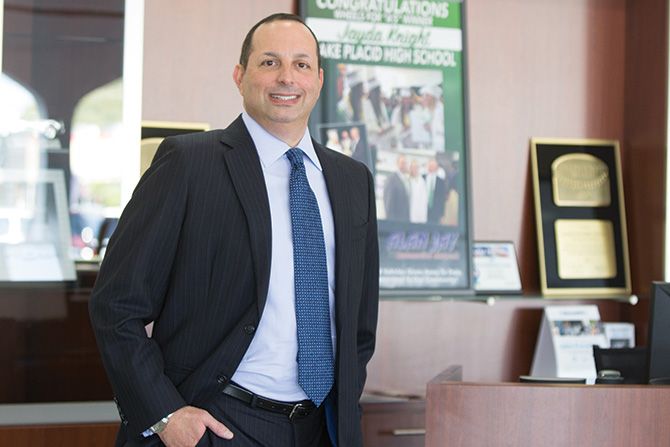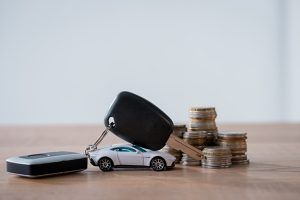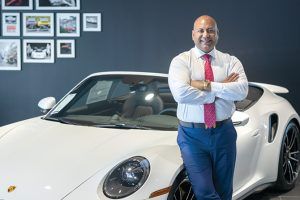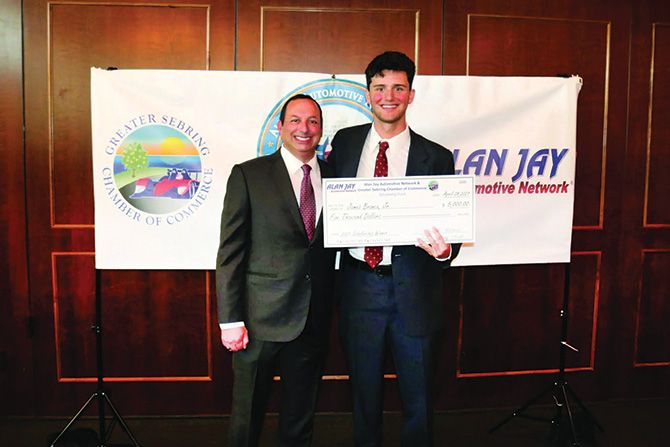
Very recently, CFADA highlighted Dealer Alan Wildstein of the Alan Jay Automotive Network. We’d like to share his interview with the Association again in the event you missed it the first time, or if you’d just like to refresh your memory about this Florida car dealer.
This article was originally published in 2021-2022 Issue 2.
You come from a car family, so the automotive industry would have been the obvious career choice. And so would taking over the family business, but you chose to strike out on your own in 1992. Tell us about that.
Well, I think first and foremost, I have brothers who were already in the family business, so I think striking out on my own was a natural progression. My two brothers still own Tropical Chevrolet Miami Shores on the same site as the original family dealership. My dad is my mentor and best friend, and he is still active in the business. He acts as a consultant.
In January 1992, I found a store, which my dad bought for me. He put me in business, and he has been my single biggest mentor, teacher and influencer. I paid my dad back; that was important to me. I still talk to my dad every day about the business, and his insights have been invaluable.
My business has grown by acquisition. In retrospect, I did the unusual: I reached out to competitors. I invited them to lunch. Some were reluctant, but I let them know I wanted to be a good industry partner. I made friends with my competitors, which I think makes a great deal of sense. We’re all in the same industry. My dad taught me that.
Because of those relationships – based on mutual respect and, in many cases, genuine friendship – I usually had the first offer to buy when someone retired or wanted out of the industry. Our business strategy is community involvement: Giving back. I think our growth has been the dividend of that approach. There’s sound economics in being entrenched in the community in which you do business.
Describe your educational background. What did you study?
I have a B.A. from Northwood University of Midland, Michigan, in Automotive Marketing and Management. It’s one of the few places where you get a real knowledge of the auto industry in higher education.
Are there any specific individuals who had a major impact on your career?
My dad, Larry Wildstein. He is passionate about this business; I couldn’t have asked for a better mentor. I also followed, and still do, a lot of successful business owners in the car business. There’s a lot to be said for learning from others.
The Alan Jay Automotive Network – a network that spans over multiple states and employs close to 1,000 people – is just about to turn 30 years old. That’s a relatively short time to accomplish what you have. What motivates you to get up each day and do it again?
Today, it’s growing people, building opportunities and moving people up. People development is fun.
We have 12 dealerships in Florida and four in Michigan. Growth is really about economies of scale. For instance, we can share switchboards within the Sebring stores, and in Michigan, we can share snow plows. If we go into a market, we want to grow because it makes sense.
Our partners in Michigan, Art White and Mike Withum, are lifelong friends. We all went to Northwood, and in 1986, we all pledged together as freshmen. Art worked in a KIA dealership, and I knew he would love to own a dealership. I thought that if we found one, we should buy it. KIA of Canton became available; we did our due diligence, during which we found out that they had no snowplow. It snows a lot in Michigan. I looked across the street and saw Nissan of Canton and wondered if they had a snowplow.
I called another partner, James Lizotte. Art, James and I had a roundtable, and as a result, we acquired not only the KIA of Canton store but also Nissan of Canton, Nissan of Dearborn and Nissan of McComb. Those acquisitions happened essentially over getting access to a snowplow.
As I said, Art and Mike are friends from college; we’re going on 35 years. James is new. We’re all doing great, and it’s working.
Here’s what I have learned: the bigger we become, the more we can. Everything is about economies of scale, snowplows included.
What’s the secret sauce, if you will, for you in running a successful dealership network?
People. Surround yourself with people who are smarter than you. Pay them well and let them thrive.
We all have core values that guide what we do. They are those proverbial lines in the sand. Do you have a personal and business creed, if you will, that you live by?
I borrowed mine from Churchill. While I don’t necessarily agree with everything he said and did, his quote, “You make a living by what you get. You make a life by what you give,” has always resonated with me.
What do you think will be the most significant challenge the auto industry will face in the next five to ten years? Does it concern you?
I think one of the industry’s most significant challenges will be staffing. And, yes, it concerns me. People don’t wake up and want to be a mechanic. The auto industry has a smaller labor pool because young people are not guided into the industry. I think we need to do a better job of showcasing the benefits of working in this industry. We need to work on recruiting and retaining. I think we can all see the effects of a smaller labor market post-COVID, but the labor pool was shrinking well before COVID.
I believe we are looking at a paradigm shift. Cars, in the future, will be more sophisticated, and they may need less work. I think we’re seeing a big wave of change in electrification, and those dealers who embrace change and learn to evolve with the market will continue to be successful.
Dealers have a place in the auto industry. The services we provide are valuable. As we faced Y2K in 2000, no one thought about doing business online, yet here we are. Industries change, which is not a bad thing. But change is something to be aware of and adjust for.
What is the takeaway for you from the pandemic that will guide your future business decisions as a small-business owner and leader?
The bigger picture was that we all lost important people, which made me realize the fragility of life. Tomorrow is never promised. Don’t wait to say the important things.
I also learned that nothing is impossible. As a business, we did more with less and sold cars with no inventory.
If you look back at your career and life, what would be three lessons learned that sum it all up? Think of this as legacy advice, if you will, to a young person looking to make it into the auto industry.
First, never sacrifice your integrity for a career. Second, do the right thing, even when it’s not easy. Third, lead by example. Walk your talk.
Can I give one more? Pay it forward. My success has never been measured by money. I only need what I need; my motivation is to give it away. Again, it goes back to the Churchill quote.
Why is it important to be a CFADA member? What makes it valuable for the dealers?
I think the most important value of any trade association is in monitoring the legal landscape and keeping members informed. You don’t know what you don’t know, and CFADA plays such an important role in keeping our members abreast of the laws. CFADA is such a valuable resource.
The next and most immediate benefit for me has been camaraderie. Sitting in a room with peers and gaining knowledge from bright and accomplished business people is a big benefit. My takeaways are so valuable: other ways they do things, how to resolve industry issues in ways I haven’t thought of, and the list goes on. Peer mentorship is valuable and has made an impact on my success in this industry.
You are involved in many civic and charitable organizations. Many notable people have said that philanthropy has to be taught and instilled while young. What are your thoughts, and what motivates you to give to the extent you do?
I came from a family big on giving back; it was instilled from a young age. It’s top down. The people around you need to practice it for it to make an impact. We all learn by example.
I have been so blessed – it’s more fulfilling to give. I get joy from giving, not just financially but with time and experience. Things that others may not get to experience in everyday life. To bring something new to someone brings me a lot of satisfaction.
My daughters joke that it takes me two hours to fill up my car with gas. I have a penchant for exotic cars – l love them. So, when I pull into the gas station, a lot of kids (and some adults) want to see the car. Many have never seen or will see the type of cars I drive. Those cars are great to drive, but taking people for rides is far more fun, and I have opened up someone to an experience. And who knows where that will go. That’s the exciting part.
I also think that anyone can learn to do good. I don’t believe that philanthropy is something for the upper echelons, if you will. We can all give back to our communities. We can all learn, and we can all do.
If you could choose one charitable cause that will be your legacy because it meant the most to you personally, which one would it be?
For my local community, it’s the United Way. Our local United Way partners with 17 or 18 agencies, and all money they take in stays here, in Highlands County.
It’s a chop-wood-carry-water approach to local needs. The United Way supports a battered women shelter, Habitat for Humanity, and the Boys and Girls Club, to name three.
Our dealership group also supports other community programs we initiated, such as Wheels for As. It’s a lottery. Every A gives students a pull to win one of the 80 cars we give away. We also offer a scholarship program for the kids of our employees: $1,000.00 toward tuition.
I think being involved in your community is essential, and I genuinely believe that when our employees see the focus we have on giving back, it’s something they embrace on their own. We have a pay-it-forward approach.
For me, however, much of the most meaningful philanthropy work I do is anonymous. If I have to tell you, I am not doing it for the right reasons. I don’t like to talk about all of it because it’s done for me. I am blessed, and the opportunity to quietly give back is just that – an opportunity.
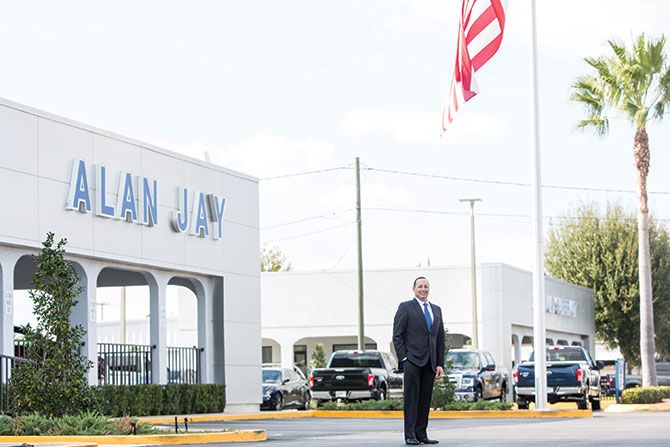
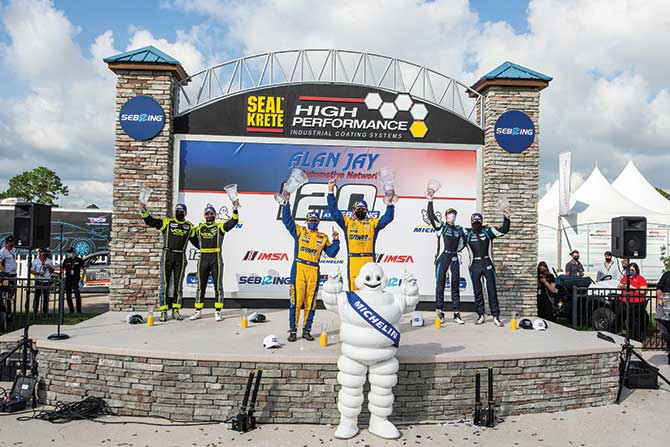
You are a well-known sports car enthusiast. Describe your all-time favorite vehicle (it can be one you’ve owned or something on your wish list). What are you driving now?
My next car will always be my favorite! Right now, I am driving an Enzo Ferrari.
Sebring International Raceway is the birthplace of American endurance racing. Originating from a WWII B-17 training base known as Hendricks Field, Sebring has been the home of the legendary 12-hour endurance race since 1952. The 3.74-mile circuit is considered the world’s most demanding road course. Your name is on the International Raceway’s Paddock. Tell us a bit about that.
That has an interesting back-story. It’s well-known that I love cars. I am also close with the NASCAR family who owns the Sebring raceway. They approached me with the opportunity to become a more significant partner. It fit. It made sense. It’s cars. We give 500 tickets away every year for the 12-hour race. It’s been a really fun thing to do. Again, it’s providing people with an experience.
Your name is also on the performing arts center at the South Florida State College. Do you have a personal interest in the arts?
We do a lot with schools. We’re big on providing educational opportunities, but you have to have arts. The arts are important. They have a long history of bringing people together and increasing our understanding of others. The performing arts center at the College was just another way to give back, but it’s more personal than business. It’s a legacy to my family. That performing arts center will be there long after I am not here. It’s a source of tremendous pride. I have friends there. It’s pretty cool when I am out and about, and I overhear someone talking about taking classes there.
The performing arts center is the thing I am most proud of because it impacts and builds a community.
Tell us about your family.
I have three daughters, ages 21 to 26. They are all here in Central Florida in various stages of school. All three are focused on the arts, so there’s no succession plan. I want them to do what they love. Life is too short not to.
What is your favorite way to spend your free time? Any unusual hobbies?
I don’t have a lot of free time; I’m always doing something. For me, it all comes back to people and opportunities. I don’t have hobbies. I enjoy spending time with friends and family, and I am trying to learn golf. I like to build businesses, people and communities. I am a thinker with ideas.
I am around wealth, but I am not really impressed by wealth. I am excited about the cars, and I love sharing that excitement with others. In my excitement, I fear that I don’t come off as humble as I feel.
There have been some recent changes with your business. Tell us about that. What does the future hold?
Our pending partnership with LMP will open up opportunities to expand our brand in other markets. They are a great group of people and I am excited to work with them.
I love this industry and the future looks bright.



